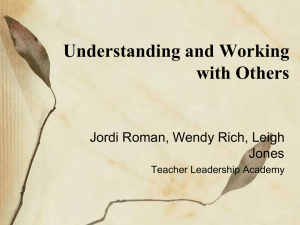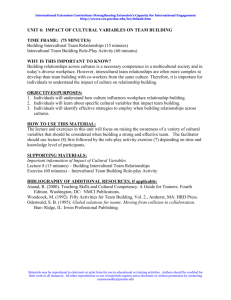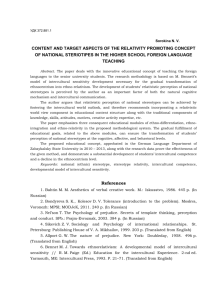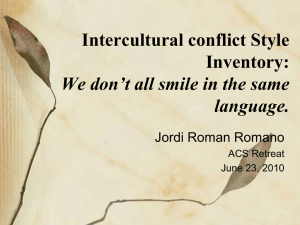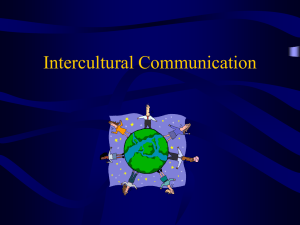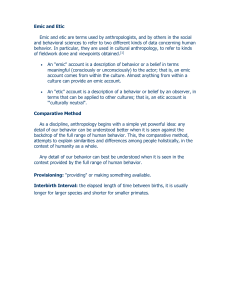Questions to Stephen B
advertisement
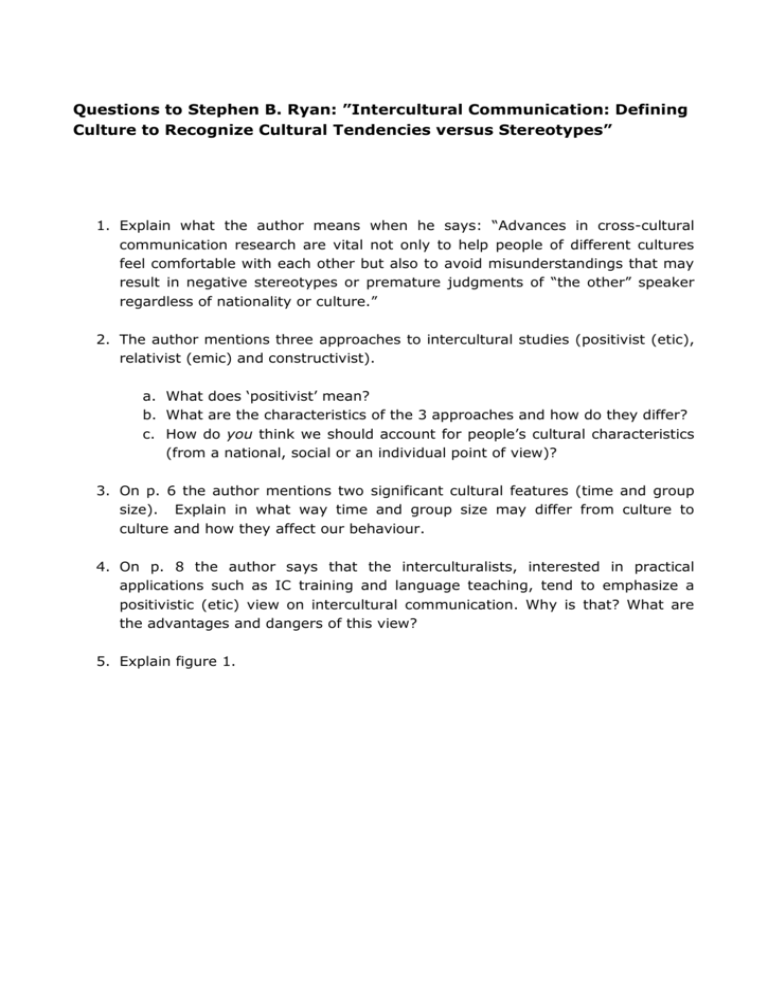
Questions to Stephen B. Ryan: ”Intercultural Communication: Defining Culture to Recognize Cultural Tendencies versus Stereotypes” 1. Explain what the author means when he says: “Advances in cross-cultural communication research are vital not only to help people of different cultures feel comfortable with each other but also to avoid misunderstandings that may result in negative stereotypes or premature judgments of “the other” speaker regardless of nationality or culture.” 2. The author mentions three approaches to intercultural studies (positivist (etic), relativist (emic) and constructivist). a. What does ‘positivist’ mean? b. What are the characteristics of the 3 approaches and how do they differ? c. How do you think we should account for people’s cultural characteristics (from a national, social or an individual point of view)? 3. On p. 6 the author mentions two significant cultural features (time and group size). Explain in what way time and group size may differ from culture to culture and how they affect our behaviour. 4. On p. 8 the author says that the interculturalists, interested in practical applications such as IC training and language teaching, tend to emphasize a positivistic (etic) view on intercultural communication. Why is that? What are the advantages and dangers of this view? 5. Explain figure 1.

